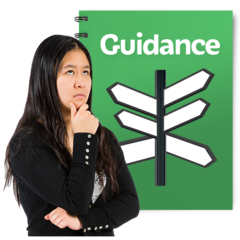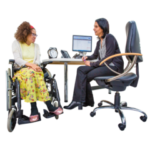


Useful for everyone
Government guidance on restrictions from 19th July
Stay at home: guidance for households with possible or confirmed coronavirus (COVID-19) infection
Easy read ‘Stay at home: guidance for households with coronavirus’
Visits out of care homes guidance (Updated 15 July 2021) – This guidance applies to residential care homes, and care home residents of all ages.
If you cannot get an NHS COVID Pass letter (easy read) – Easy read version of the non-personal information sent to you if you cannot get an NHS COVID Pass letter about your COVID-19 status
How to stop the spread of coronavirus (also available in easy-read) – Advice for everyone to help stop the spread of coronavirus (COVID-19).
The visiting guidance for those in care homes and supported living has been updated – Alex Ruck Keene (from 39 Essex chambers) talks about the changes here
Guidance from the government on how to stop the spread of the virus is now available in 31 languages you can Access these here
Coronavirus (COVID-19): advice on accessing green spaces safely
Advice on using green spaces and protecting yourself and others from coronavirus
COVID-19 restrictions posters: 29 March 2021
What you can and cannot do from the 12th April: Covid-19 restrictions
COVID-19 mental health and wellbeing recovery action plan – the plan to prevent and respond to the mental health impacts of the pandemic during 2021 to 2022
Clinically extremely vulnerable will no longer need to shield from April 1st – press release
All households with children of school age to get 2 rapid COVID-19 tests per person per week
Second quarterly report on progress to address COVID-19 health inequalities – the Minister for Equalities talks about progress to understand disparities experienced by individuals from an ethnic minority background
COVID-19 Response Spring 2021 (including roadmap out of lockdown)
Guidance on protecting people most likely to get very poorly from coronavirus (shielding)
Free PPE now available for unpaid carers
COVID-19: letter to clinically extremely vulnerable adults
Updated guidance on shielding and protecting people who are clinically extremely vulnerable from COVID-19 – Adults with Down’s syndrome have been added to the list of people classed as clinically extremely vulnerable – Read more on this in easy read by clicking here or find more information here.
Easy read advice for the clinically extremely vulnerable people – from Department for Health and Social Care
Vitamin D Guidance – for vulnerable groups
Visits out of care homes – this guidance applies to residential care settings for older people and adults of working age.
The Government’s Covid-19 winter plan – Read the FULL PLAN or a SUMMARY of the plan
Guidance on MCA and DoLs during the coronavirus pandemic
Easy read guide about the ethical framework for adult social care. These are rules to help make sure that decisions about care and support are made fairly.
Legal guidance for mental health, learning disability and autism, and specialised commissioning services supporting people of all ages during the coronavirus pandemic.
NHS and Public Health England general guidance.
New guidance for young carers and young adult carers, including information on staying safe and well, practical advice and support, schools and education, and information for young adult carers on how to support people when you are not living at home.
Guidance on the re-opening of special schools and what this will mean for children.
Guidance about the register held by the Office of the Public Guardianof everyone who has a lasting or enduring power of attorney (LPA and EPA), or who has a deputy acting for them. This can be searched by social care staff to find the contact details of those involved.
Find out more about what you can and can’t do here

For organisations and people who employ their own staff
Frontline health and care staff can work rather than self-isolate – Frontline NHS and social care staff can attend work rather than self-isolate with testing mitigations in exceptional circumstances under updated guidance
Guidance for care staff supporting adults with learning disabilities and autistic adults
Working safely during coronavirus (COVID-19): guidance from Step 4
The visiting guidance for those in care homes and supported living has been updated – Alex Ruck Keene (from 39 Essex chambers) talks about the changes here
Everyone working in care homes to be fully vaccinated under new law to protect residents
Guidance for health professionals to support people with learning disabilities to access screening
COVID-19: how to work safely in care homes – Guidance for those working in care homes providing information on how to work safely during this period of sustained transmission of COVID-19
COVID-19: how to work safely in domiciliary care in England – A resource for those working in domiciliary care providing information on the use of personal protective equipment (PPE)
Guidance on care home visiting – Updated 4th May.
Visiting arrangements in care homes – Sets out how care homes can support families and visitors to visit residents (updated 4th May).
Restricting workforce movement between care homes and other care settings
Guidance for care staff supporting adults with learning disabilities and autistic adults
Guidance packs for using lateral flow tests – for residential care providers and for their visitors
Video on how to use the PPE portal
Guidance for extra care and supported living settings to access testing
Coronavirus (COVID-19): provision of home care – aims to answer frequently asked questions from registered providers, social care staff, local authorities and commissioners who support and deliver care to people in their own homes
Guidance on the adult social care infection control fund – this fund is to support adult social care providers to reduce the rate of COVID-19 transmission within and between care settings
Guidance for providers of supported living settings
Letter to Care Providers from director of adult social care delivery, includes actions that need to be taken around testing and PPE to prevent a rise in coronavirus cases.
Guidance portal for adult social care
Easy read clinical guidance for support staff
Care Act easements: guidance for local authorities
Guidance for supported living services
Guidance for care staff supporting adults with learning disabilities and autistic adults (last updated 29th September 2020 ).
Clinical guide for front line staff supporting the management of patients with a learning disability, autism or both during the coronavirus pandemic.
This guidance includes information on listening to people and their families or supporters, communication and decision making.
Guidance on delivering safe face-to-face adult daycare (SCIE on behalf of DHSC).
Guidance on reducing risk in adult social care
Guidance on support for care homes
Guidance for providers of supported living services
Guidance to commissioners about social care provider resilience during COVID-19 from the The Local Government Association.
This is shared guidance to local authority commissioners from the Association of Directors of Adult Social Services (ADASS), the Local Government Association (LGA) and the Care Provider Alliance (CPA).

For people who use Direct Payments and Personal Budgets
Statement from the Department for Health and Social Care on Local tiering alerts and delivering personal care and support in people’s homes:
‘If your own local alert level becomes tier two or tier three, it is confirmed by the Department for Health and Social Care that personal assistants will continue to be considered as key workers. This means you can continue to deliver care in people’s homes and maintain your status as a key worker. This status is set out in principle four of this guidance and is not anticipated to change.’
Coronavirus guidance for people receiving and delivering direct payments – Advice for people that are using direct payments and the local authorities and clinical commissioning groups who are delivering the payments.
Using direct payments during the pandemic – the most important things you need to know
This is about the money and how direct payments will work.
Easy read guidance for people who use direct payments and their personal assistants (updated June 2020).
Here is a template from DHSC to make a Contingency Plan during the pandemic if you use a Direct Payment.
Here is the full guidance about Direct Payments, including Q&As

GPs, medication and hospitals
Latest guidance on shielding and protecting people who are clinically extremely vulnerable from Covid-19.
Health at Home campaign – how to contact your GP, order repeat prescriptions, manage your wellbeing and existing conditions – without having to leave home.
Compilation of guidance on supporting patients of all ages who are unwell with coronavirus (COVID-19) in mental health, learning disability, autism, dementia and specialist inpatient facilities.
This has useful information about testing and going into hospital as well as information about ‘reasonable adjustments’ and protocols for transfer to an acute hospital setting where needed.
Guidance on hospital visiting. Most visiting is not allowed but people with learning disabilities or autistic people can have a visitor who supports them if them not being there causes more distress.
Guidance and updates for GPs, who have been given guidance by NHS England about how to support their most ‘at risk’ patients.
Easy read C(E)TR – Care (Education) and Treatment Review – planning and consent form
Health Education England have published guidance in a range of accessible formats, including formats suitable for children and for older people.
Letter from NHS England to all NHS organisations on the response to the 3rd phase of response to COVID-19. This includes specific actions on health checks, reducing the number of people in ATUs and completing LeDeR reviews; plus expectations on the wider inclusive restoration of services.